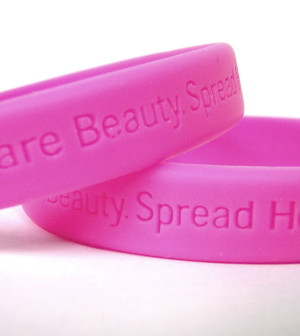- 8 Ways to Increase Dopamine Naturally
- 7 Best Breads for Maintaining Stable Blood Sugar
- Gelatin vs. Collagen: Which is Best for Skin, Nails, and Joints?
- The Long-Term Effects of Daily Turmeric Supplements on Liver Health
- Could Your Grocery Store Meat Be Causing Recurring UTIs?
- Are You Making This Expensive Thermostat Error This Winter?
- Recognizing the Signs of Hypothyroidism
- 10 Strategies to Overcome Insomnia
- Could Artificial Sweeteners Be Aging the Brain Faster?
- Techniques for Soothing Your Nervous System
Parents Who Used Donor Eggs Often Struggle Over Decision to Tell Kids

THURSDAY, Oct. 17Many people who used donor eggs to become parents are grappling with the issue of whether they should tell their children how they were conceived, according to a new study.
Up to 60 percent of donor-egg recipients weren’t sure if they would inform their child how they came to be for fear of facing cultural disapproval or being ostracized by their community, researchers found.
And even parents who did plan to tell their children about their genetic history often had trouble deciding exactly how and when to have this conversation.
A second study followed up on parents who had their children via egg donation at least 10 years ago, to find out if they’d actually gone on to tell them and how it felt before and after the revelation.
The findings are scheduled for presentation Thursday at a meeting of the International Federation of Fertility Societies and the American Society for Reproductive Medicine (ASRM), in Boston.
“Even though many parents through egg donation remain uncommitted to discussing it with their children, we see a trend toward greater openness which reflects our society’s increasing comfort level with [fertility treatment] and increasing recognition that there are many different ways to create a family,” Richard Reindollar, president-elect of the ASRM, said in a meeting news release.
“Counseling and resources need to be made available to parents who use egg donation, not just at the time of their [fertility treatment] cycle, but into the life of their family to assist them in the disclosure process,” he added.
Experts generally advise that children conceived with a donor egg be informed about their genetic heritage and medical history. Still, the study authors, from Reproductive Medicine Associates of New York and the Mount Sinai School of Medicine, found that many parents are hesitant to have this discussion.
The researchers asked 438 patients who received donated eggs between 2008 and 2012 about their plans to reveal or withhold this information to any children they had through the process.
Over the course of the study, the percentage of donor-egg recipients willing to talk to their children about their origin fluctuated significantly. In 2008, 42 percent of recipients said they planned to inform their children. This dropped to just 21 percent by 2009, but later rebounded to 47 percent of parents in 2012.
Parents who planned to talk to their kids about their genetic history said they did not want to keep secrets and wanted their children to have important information about their medical history.
The study found that 40 percent to 60 percent of parents were undecided about whether they would tell their kids about how they were conceived. Aside from fear of disapproval from their community, these parents did not want their child to be confused about their identify or how they perceived themselves, the study found.
In a separate study, researchers from the Weill Cornell Medical College, in New York City, asked parents who used egg donors between 1992 and 2003 if they followed through on their decision to talk to their child about how they were conceived. Of the 64 families involved in the study, 43 percent had told their children about their genetic history.
These families had a combined 73 children between 2 years old and 19 years old, all conceived with the help of a donor egg. On average, the children learned about their conception at the age of 6. Parents who revealed this information by the time their child was 10 years old reported being anxiety-free and happy with their decision.
Of the 57 percent who had not yet spoken to their child about their conception, 87 percent still planned to do so at some point. Of these parents, however, 43 percent were not sure how to go about having the discussion, which was causing the delay.
Parents who had not made the revelation by the time their child became a teen felt a significant amount of anxiety about it.
More information
Visit the U.S. Centers for Disease Control and Prevention to learn more about assisted reproductive technology.
Source: HealthDay
Copyright © 2026 HealthDay. All rights reserved.










